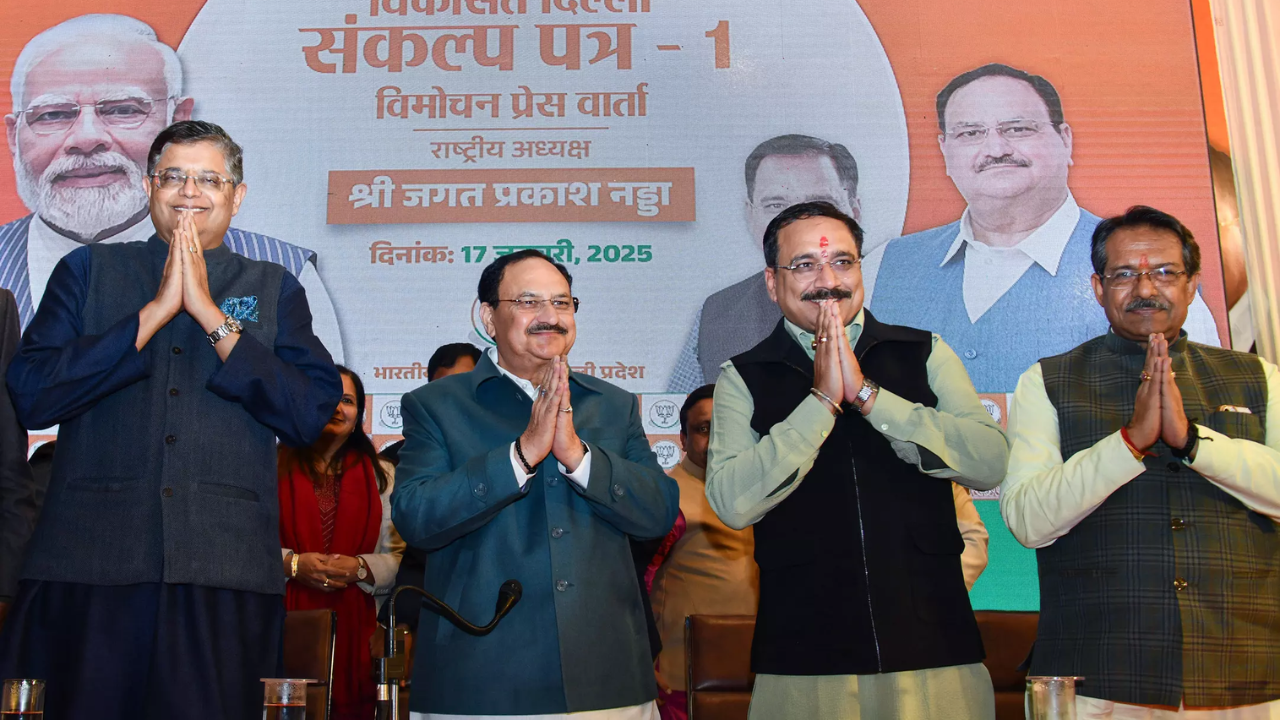Are you tired of empty promises from politicians? Delhi's upcoming elections have left voters disillusioned, but the BJP is making bold claims with their new manifesto. Get ready for a wave of unprecedented financial aid that could reshape the lives of Delhi's citizens, especially women. Buckle up for a deep dive into the BJP's ambitious plans!
BJP's Delhi Manifesto: A Financial Lifeline for Women?
The BJP's Delhi manifesto for the upcoming elections is packed with promises designed to improve the lives of women. At the heart of this lies a generous monthly allowance under the "Mahila Samridhi Yojana." This scheme, proposing a monthly payout of Rs 2,500, has already generated substantial buzz. Is this a game-changer, a real attempt at empowerment, or just another election promise?
The Details: How much could you actually get?
The Mahila Samridhi Yojana is not just about a simple monthly stipend. The BJP is promising significant financial assistance during pregnancy and early parenthood. Expecting mothers can look forward to Rs 21,000 and six nutritional kits, providing crucial support during a critical period. For the first child, a further Rs 5,000 is promised, with an additional Rs 6,000 for the second child. This substantial support system goes beyond financial aid; it actively seeks to boost the health and well-being of both mother and child. Will this be enough to impact women's overall economic position, and what other factors play a crucial role? A deeper analysis will reveal the true impact and the underlying social factors at play.
Comparing with other initiatives
How does this compare with similar schemes in other states, or with AAP's proposal of Rs 2,100 monthly for women? The BJP claims that these direct cash transfer schemes have already been implemented successfully in Madhya Pradesh, Maharashtra, Chhattisgarh, and Haryana. Can their implementation in Delhi follow a similar success trajectory? How might the potential additional aid from BJP compare in the context of already existing financial assistance, as the AAP government offers several such initiatives? This needs closer examination and comparison.
Beyond the Money: Healthcare and Senior Citizen Welfare
The BJP's vision goes far beyond direct financial support. The manifesto explicitly aims to ensure universal health coverage via the Ayushman Bharat scheme. This is accompanied by a promised additional Rs 500,000 health cover, providing total coverage up to Rs 1 million per citizen. This bold move seeks to address the issue of healthcare access and cost, particularly relevant in a densely populated city like Delhi. The promise to reinstate the pensions for senior citizens, a feature temporarily stalled, showcases the BJP's ambition to focus on all vulnerable sections of society.
Ayushman Bharat: Coverage or a political tug-of-war?
The implementation of Ayushman Bharat in Delhi has been a constant point of contention between AAP and the BJP. While BJP leaders criticize AAP's handling of existing welfare schemes, and the implementation of the Ayushman Bharat initiative is central to the campaign. Will this promise gain the support and engagement of Delhi's citizens?
Support for Senior Citizens
Senior citizens above 70 would also benefit from the enhanced health cover, which further underscores the BJP's commitment to welfare measures for this specific vulnerable section. Additional welfare provisions could also make all the difference. Are there potential unforeseen challenges of delivering such large-scale welfare packages efficiently, particularly considering existing services? How might the manifesto proposals fare under an existing bureaucracy and the system's capacity?
Atal Canteen Scheme: Food Security for Delhi's Poor
In addition to major financial promises, the BJP has proposed the innovative Atal Canteen scheme. Designed to provide affordable meals at just Rs 5, this scheme aims to alleviate hunger and malnutrition among laborers and slum dwellers. The provision of full meals at this affordable price is not only economically empowering but also represents a commitment to basic necessities.
Affordable Meals for All
The long-term implications of the Atal Canteen Scheme will require sustained commitment in operational planning and investment. It also necessitates a robust mechanism for efficient procurement and logistics. The scheme has the potential to reshape food security significantly, although logistical hurdles in managing affordable mass feeding programs would be a crucial challenge.
Conclusion: Take Away Points
The BJP's manifesto is brimming with high-impact promises. Whether these translate into reality post-election is yet to be seen. However, with significant pledges targeting women, senior citizens, and the economically marginalized sections of society, it certainly has captured the attention of many. This far-reaching commitment to welfare, especially financial welfare programs and healthcare reform, promises a transformative influence on the state of Delhi. The upcoming elections might be highly determined by how many voters believe this transformative vision will eventually unfold.




